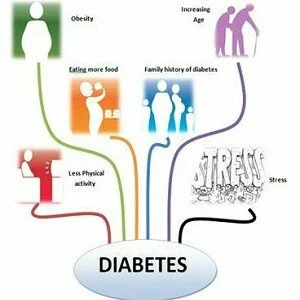New Delhi: Diabetes patients are at more risk of suffering from small vessel disease as its initial phase goes undetected in them, doctors have said.
They said though the major symptoms of small vessel heart diseases include chest pain, patients with diabetes do not suffer any pain as the concerned nerves get damaged causing less or no pain.
“Deaths caused by cardiac arrest due to small vessel artery diseases are increasing among diabetes patients.
“The disease in diabetics goes undiagnosed because they normally feel less or no pain and therefore the symptoms of heart attacks go unnoticed,” said Vaibhav Gupta from the city based Institute of Preventive Heart Care.
He said as the detection is late or only when the diabetes patient suffers mild attacks, it becomes comparatively difficult for the cardiac experts to treat the patients.
Small vessel disease is a condition in which small arteries in the heart become narrowed in which fatty deposits build up in the arteries.
“Treatment becomes difficult because procedures such as angioplasty, stents or coronary artery bypass graft surgery which is the only solution cannot be suggested to every patient due to their condition,” he said.
Gupta said there were several new emerging methods that have resulted in the easy treatment of the small vessel disease.
S.S. Sibia, director and consultant of Sibia Medical Centre, said: “External Counter Pulsation (ECP) therapy is emerging as the best treatment for small vessel disease patients as it dilates the coronaries, opens dormant blood vessels and stimulates angiogenesis.”
An analysis of data from the International ECP Patient Registry concluded: “ECP is safe, well tolerated and associated with improvement in angina, functional status, and quality of life and that clinical benefit was maintained in most patients at one year in diabetic patients.”
Patients with Coronary Artery Disease and diabetes often make excellent candidates for ECP Therapy since diabetic patients are at known increased risk for interventional complications.
“Reports from ECP centres suggest that patients who have undergone ECP not only have better control of their blood glucose levels but have also had their physician lower (or in some cases, completely eliminate) the dosage of diabetic medication needed to maintain an optimum blood sugar level,” he said.


No Comments